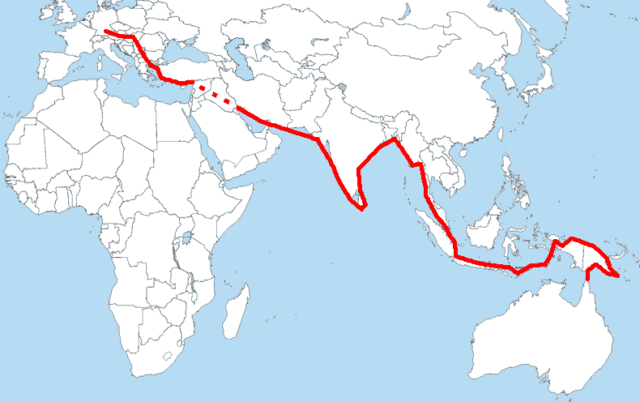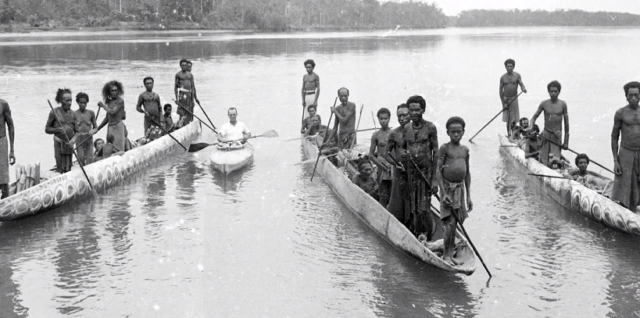A German who paddled 30,000 miles to Australia in a kayak, only to be arrested as an illegal alien
Oskar Speck was born in 1907 in Ulm, near Hamburg, Germany. After graduation, he started a business as an electrical contractor, employing 21 people.
Since the late 1920s, he was also known in Germany as an enthusiastic kayaker. In 1932, his business went under due to the Great Depression and, like millions of his fellow Germans, Speck found his life at a crossroad.
After learning that he might be able to find work in the Cypriot copper mines, Speck came up with a plan. His idea was to use his kayaking contacts with the Pionier Faltboot Company, an enterprise specialized in making kayaks, and persuade them to sponsor his kayak journey to Cyprus.
He would report to the media from various destinations, making a good brand marketing for the company. Pionier took up on his offer.
In May 1932, he sold his belongings and set off from Hamburg in his collapsible double-seated kayak Sunnschien (sunshine), modified for single use and room for storage – a camera, clothes, a pistol, documents, sailing charts and a compass. He paddled down the Danube river, towards the Mediterranean.
Already in Bulgaria, his adventurist spirit started running wild. The Danube seemed too tame. What if he conquered a river no one ever tried to sail in a kayak? Little did he know that following this feeling would be the actual start of a seven-years adventure.

Thus after wrecking half of his kayak’s ribs in the Vardar river in Bulgaria he finally reached Macedonia. There he had to wait several months for his kayak to be repaired. In 1933 he reached Thessaloniki and finally faced the sea. While paddling from island to island he realized that he no longer wished for the mining job.
He was rapidly gaining popularity, and anywhere he went he was met with the kindest hospitality he could hope for. He could paddle anywhere he wanted to. Maybe as far as Australia? Now, that would make for a hell of a story!
After reaching Cyprus he continued to Egypt, determined to conquer the Euphrates. In the Persian Gulf, his kayak broke and while waiting for a replacement he contracted malaria.
The disease was to follow him for the rest of his journey. In 1935, he was already widely popular in Germany – but as it turned out, his popularity was traveling faster than him. Before he reached India, he became prominent as the world’s most experienced sea-going kayaker. In Indonesia he was kidnapped and attacked by a group of locals, but he managed to escape with only a perforated eardrum.

In 1938, he resumed his trip in a new boat and paddled to the Dutch New Guinea. Back home, Hitler – and it is contested as to whether Speck used to be a fan of his – was preparing the ground invasion of Poland. From there he continued to the Saibai, Australia’s northernmost island.
It was 1939, three weeks after the war was declared in Europe. On the island coast, Speck was met by two police officers who informed him that he was to be imprisoned as an enemy. Speck allegedly demanded to be interned with his ‘fellow National Socialists’.
Eventually, he was placed in an internment camp in Victoria, where he made an unsuccessful attempt to escape. He remained imprisoned until the end of WWII. In the end, his 30,000 miles long journey didn’t turn out quite as he would have wished. The post-war world was not so enthusiastic for his achievement.
‘So ended one of the most fantastic and dangerous voyages ever accomplished by an individual… I have reached my goal, but not one of the numerous doubters would ever find out and my modest success in reaching Australia in my folding boat would be swallowed up in the imminent global catastrophe.’
